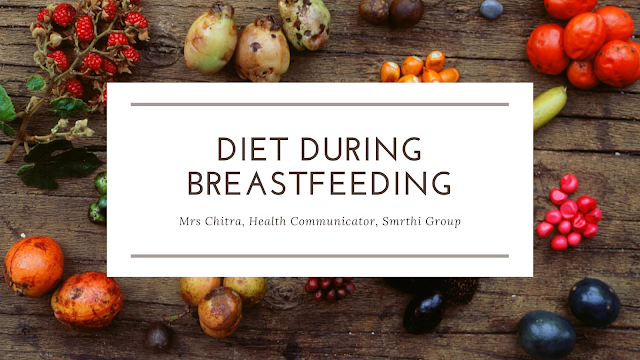Dear mom,
It is an endearing journey as you nurture your newborn. Even as you do, pay attention to what you eat for it is crucial. Here are few pointers for your diet and good health.
- Plan a well-balanced healthy and diverse diet.
- To meet the needs of breastfeeding, there needs to be an additional intake of 450 to 500 kilocalories per day for a breastfeeding mother. That is, you need to intake these many extra kilocalories. Well, to make it easier, add an extra glass of 250 ml milk and a paratha to your meal. You will be done with the extra need!
- Drink lot of fluids as much as that is needed to quench your thirst. Ensure that you are adequately hydrated.
- Spicy or gassy food does not affect most babies, but in case you see any disturbance in your child within 6 hours of any food, avoid it.
- Coffee, tea, soda contain caffeine Try to restrict them. Caffeine passes from the you to your baby in small amounts through breast milk, though it does not produce adverse effect , your little one may experience irritability, poor sleeping patterns, fussiness, and jitteriness if you consume more than 300ml of caffeinated drinks per day.
- Sea food also needs to be taken in moderation. Though it may be an excellent source of protein, vitamins, and minerals, remember that most fish contain mercury which can pass from your milk to the baby. Mercury affects the neuro development of your baby. So put some thought into the quantity of fish intake.
- Smoking, tobacco, alcohol are never good and especially you need to be extra cautious while breastfeeding. Seek professional consultation to see how you can manage these habits while breastfeeding.
- If you are a vegetarian or vegan, and if you have a well-nourished diet, you need not have concerns about the nutritional value of your milk. It is as good as any other mother. But your B12 may be low and may affect your baby’s neurological system. So, take B12 supplements. Your doctor would have prescribed this to you already along with Iron and calcium.
- Remember that the number of additional calories needed by you is affected by your age, body mass index, activity level, and extent of breastfeeding. While you will be following your culture specific diet mostly, ensure that you need to take a varied food that is well balanced. You need not restrict or overeat. Just eat to your hunger. A diet rich in whole grains, fruits, vegetables, and selected fish is good. Also do not try to shed your pregnancy weight by dieting during the first few months post-delivery. This may affect your health as well as the nutritional component of your milk.
Nourish yourself with nutritious diet even as you enjoy breastfeeding your baby!


